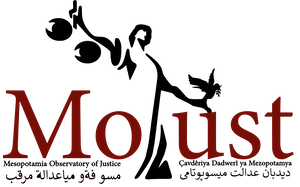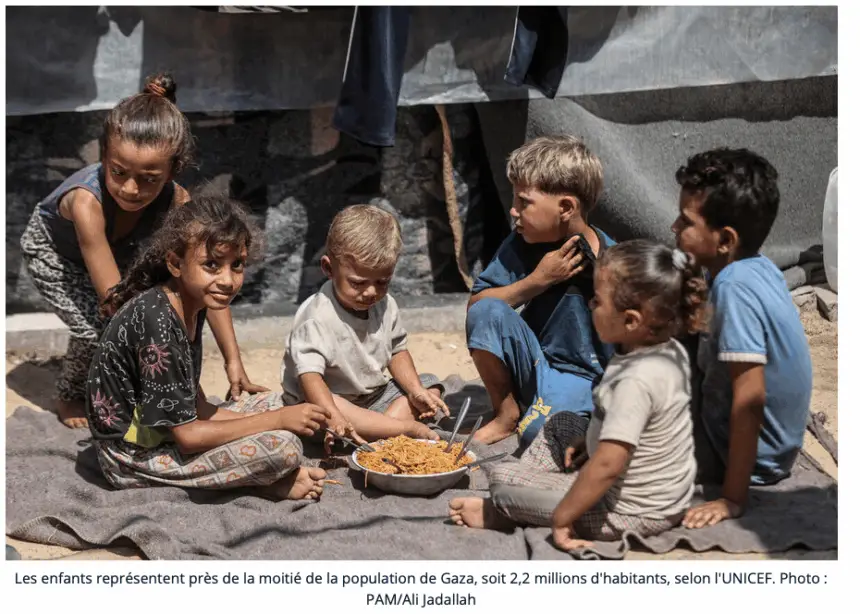The military operations launched by Israel against the Gaza Strip in October 2023, and now approaching end of their second year, have come to be not only a conventional conflict zone but also a regime of mass extermination in which the rule of law has been suspended, and civilians have become the primary targets. What is taking place in Gaza can no longer be explained through classical terms such as ‘war’ or ‘armed conflict’. Especially since late 2024, the emergence of starvation, water scarcity, and the collapse of healthcare systems intentionally caused by the Israeli army constitutes a form of biopolitical warfare against the civilian population. This war is waged not only with bombs but also by rendering the most essential resources for survival inaccessible.
As of today, the scale of the humanitarian catastrophe in Gaza is not only a matter for urgent aid appeals but also a domain of legal responsibility that must be critically examined within the framework of international law. Hundreds of thousands of people are being forced to live below the starvation threshold; children are dying from acute malnutrition; access to clean water has declined dramatically. These conditions cannot be attributed to natural disasters or infrastructure failure. On the contrary, there is a substantial body of international reports, official statements, and testimonies indicating that these conditions have been deliberately created through policies explicitly adopted and implemented by the state of Israel.
When these practices are assessed under international law —particularly in terms of international humanitarian law, international human rights law, the jurisdiction of the International Criminal Court (ICC), the Geneva Conventions, and the 1948 Genocide Convention — a horrifying picture emerges. This assessment is critical not only at the normative level but also in illustrating how a system of impunity has been institutionalized in practice.
Famine by Human Design: The Case and Its Legal Characterization
As of July 2025, the humanitarian situation in Gaza has been classified by the United Nations as “famine-level hunger”, one of the highest levels of emergency alerts. According to a report by the United Nations World Food Programme (WFP) dated July 28, 2025, approximately 470,000 people, roughly one-quarter of Gaza’s population, are living under IPC Phase 5 conditions, i.e., famine-level hunger. The same report states that, in the month of July alone, 147 people (including 89 children) died as a result of malnutrition, and 71,000 children are currently at risk of acute malnutrition.¹
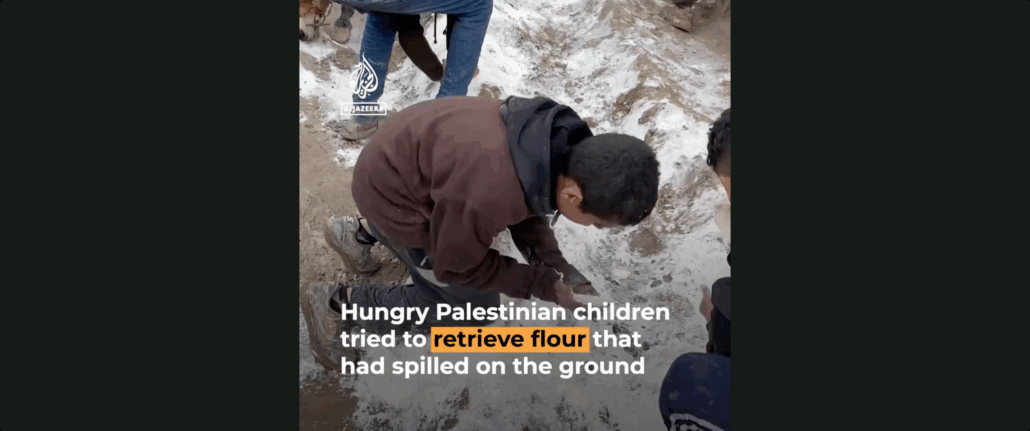
Alongside famine, the scarcity of water has emerged as another deadly threat in Gaza. The water infrastructure, systematically targeted by Israel, has been rendered inoperative since the last quarter of 2024. As of 2025, access to drinking water has dropped to as low as 1.5 liters per person per day.² This quantity is far below the minimum survival level established by the World Health Organization (WHO).
The policies responsible for this situation have been implemented by Israel not merely through passive neglect but actively and systematically. The blockade imposed on Gaza; the obstruction of food and medical aid; the cutting of energy and water supply lines; the denial of humanitarian access; and the militarization and symbolic reduction of humanitarian corridors all constitute elements of a strategy explicitly targeting the lives of civilians, not just military objectives.
In the context of international law, these actions are not merely “violations during conflict”. Rather, they constitute a set of complex and multidimensional breaches that may be categorized as war crimes, crimes against humanity, and even genocide.
Gaza in light of International Humanitarian Law
International humanitarian law constitutes the fundamental normative framework designed to protect civilians during armed conflicts. The Fourth Geneva Convention of 1949 explicitly sets forth the obligation to ensure access to basic necessities for civilian populations under occupation. Within this framework, Article 55 of the Geneva Convention imposes a duty on the occupying power to provide food supplies to the civilian population.³
Article 54 of Additional Protocol I, adopted in 1977, explicitly prohibits the starvation of civilians.⁴ The blockade imposed by Israel on Gaza, including the cutting of water and electricity, and the obstruction of health and food aid, constitutes a grave violation in this context.
The Use of Starvation as a Weapon of War Under the Rome Statute
The Rome Statute, the founding document of the International Criminal Court (ICC), contains a specific provision on starvation as part of its definition of war crimes. Article 8(2)(b)(xxv) of the Statute classifies as a war crime:
“Intentionally using starvation of civilians as a method of warfare by depriving them of objects indispensable to their survival, including willfully impeding relief supplies…” ⁵
When assessed under this provision, the practices observed in Gaza must be understood not merely as “collateral military damage” but as part of a deliberate strategy targeting the civilian population. Israel’s actions in Gaza, including the targeting of water infrastructure, the cutting of electricity and fuel supplies, the denial or symbolic restriction of humanitarian aid truck access, constitute war crimes by intentionally depriving civilians of “objects indispensable to their survival”.
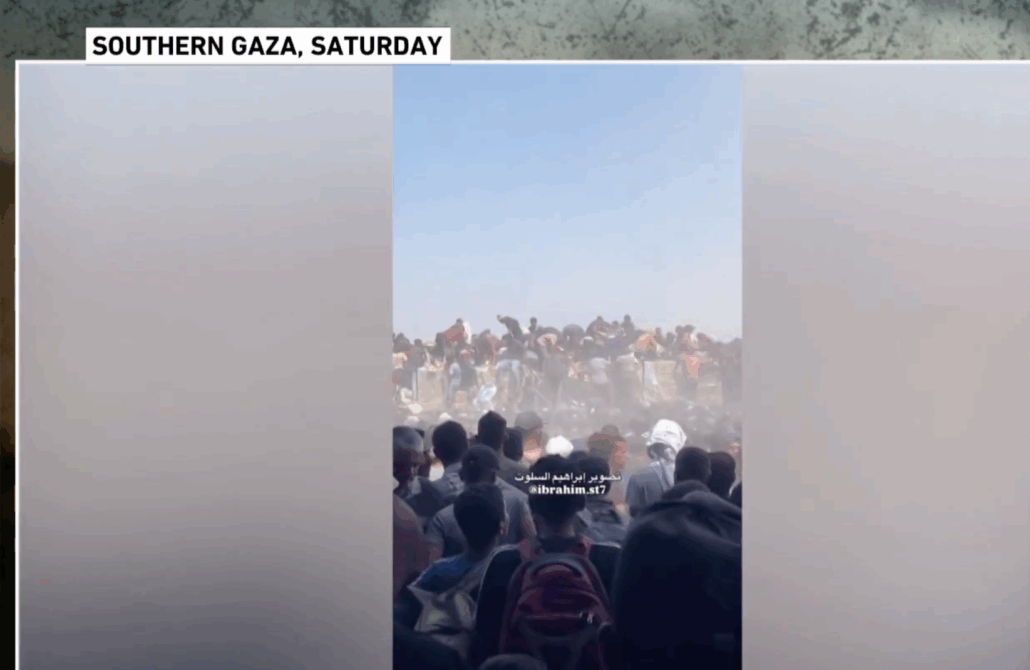
In this regard, on May 21, 2024, the Office of the Prosecutor of the International Criminal Court formally requested arrest warrants against Israeli Prime Minister Benjamin Netanyahu and Defense Minister Yoav Gallant for using starvation as a method of warfare against civilians.⁶ The arrest request specifically highlighted that humanitarian corridors in Rafah and Khan Yunis were deliberately closed, humanitarian aid deliveries were obstructed, and a “widespread strategy of starvation” targeting the civilian population was implemented.
This legal proceeding marks one of the first concrete cases in international criminal law to classify starvation as a war crime. It also sets a precedent in demonstrating that starvation is not merely a humanitarian concern but a criminal act carrying penal consequences.
International Human Rights Law: The Systematic Violation of the Right to Life
While international humanitarian law regulates periods of armed conflict, international human rights law recognizes positive rights that remain applicable even during such conflicts. In the case of Gaza, numerous international human rights instruments have been violated, particularly the International Covenant on Economic, Social and Cultural Rights (ICESCR)⁷.
Article 11 of the ICESCR guarantees the right of everyone to adequate food and housing. The right to food entails not only access to nutrition but also living conditions compatible with human dignity. In reference to the situation in Gaza, UN Special Rapporteur Michael Fakhri stated in January 2025: “The starvation unfolding in Gaza is part of a structural genocidal strategy and has long surpassed the mere violation of human rights”.⁸
Similarly, the Convention on the Rights of the Child (CRC) protects children’s rights to life, development, health, and nutrition (Article 24). The deaths of thousands of children in Gaza due to malnutrition or their exposure to permanent health complications constitutes a direct violation of this Convention.
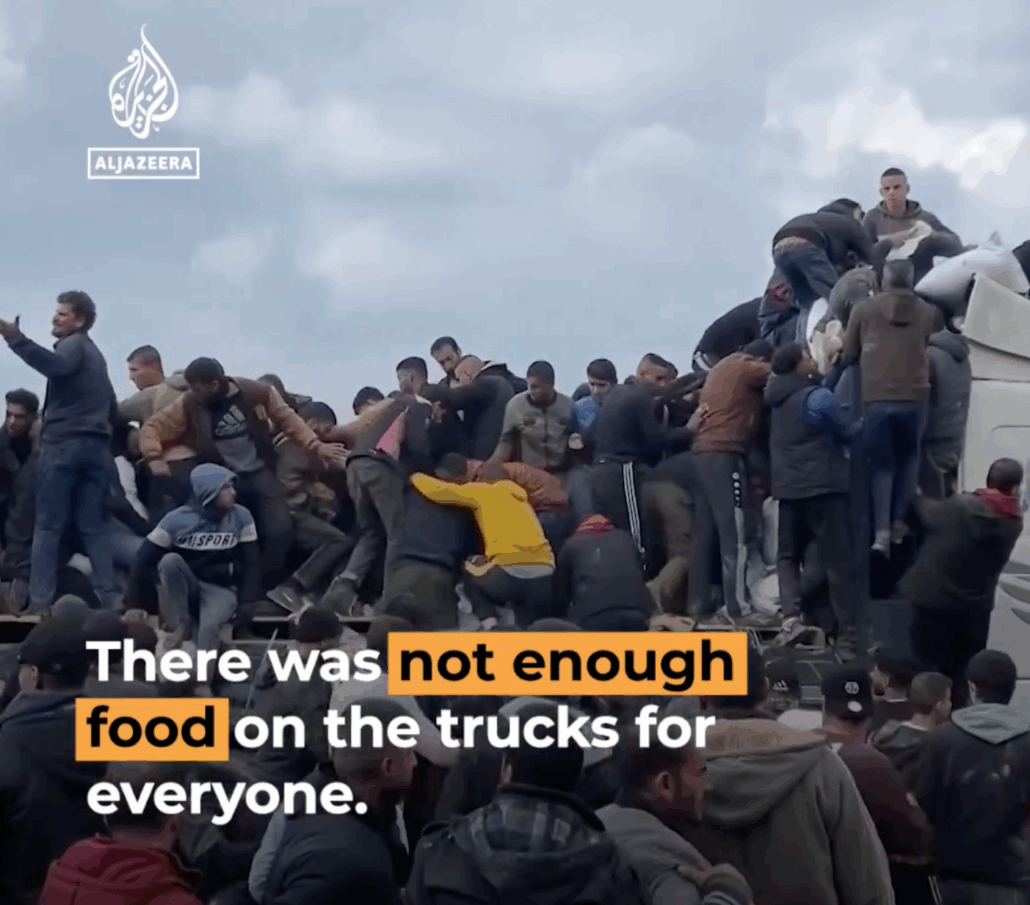
When assessed under the Convention Against Torture (CAT), starvation and thirst have evolved into systematic practices causing not only physical but also psychological suffering¹⁰. The Convention’s definition of torture includes acts by a public official that inflict physical or mental pain for the purposes of coercion or punishment. The systematic application of starvation policies to civilians may, in this context, be classified as “deliberate inhuman treatment.”
In the Context of Genocide Law: Destroying Conditions of Life
The legal classification of what is occurring in Gaza is not limited to the categories of war crimes or crimes against humanity. The 1948 Convention on the Prevention and Punishment of the Crime of Genocide (Genocide Convention) considers not only acts of direct killing but also the intentional destruction of conditions of life as constitutive of genocide.¹¹ Article II(c) is as follows:
“Deliberately inflicting on the group conditions of life calculated to bring about its physical destruction in whole or in part.”
Israel’s policies aimed at depriving Palestinians of access to water, food, medicine, energy, and shelter appear to conform to this definition. The existence of such a strategy is evidenced not only by actual practices but also by official statements. Declarations by Israeli government officials, such as “Gaza will no longer receive food, water, or electricity”, also reveal the element of intent underlying these acts.¹²
As Kenneth Roth noted in an article published in The Guardian on July 24, 2025, the events in Gaza transcend the “classic killing” paradigm of genocide and instead take the form of rendering biological life unsustainable.¹³ Therefore, it must be acknowledged that the crime of genocide is not limited to mass executions; the systematic eradication of the foundations of civilian life can likewise fall within the legal scope of this category.
State and Individual Responsibility: The Functioning and Limitations of International Mechanisms
In international law, state violations must not be addressed solely through diplomatic condemnation, but also through the regime of state responsibility. According to the Draft Articles on the Responsibility of States for Internationally Wrongful Acts adopted by the International Law Commission (ILC),¹⁴ states responsible for serious international crimes are under obligations to:
- Cease the wrongful act,
- Make full reparation for the injury caused,
- Offer guarantees of non-repetition.
Israel has failed to fulfill any of these obligations and, on the contrary, has institutionalized its violations as systematic policies.
In this context, cases brought before the International Court of Justice (ICJ), such as the genocide case filed by South Africa against Israel in December 2023, stand as precedents that directly invoke the responsibility of the state.¹⁵
On the other hand, individual proceedings before the International Criminal Court (ICC) raise the issue of criminal liability of political leaders. These proceedings are critical not only for the sake of criminal justice but also for the deterrent function of international law. The arrest warrant applications issued for Netanyahu and Gallant serve as both a legal and symbolic threshold in this regard.
Breaking the Silence of Law
What is taking place in Gaza is one of the most severe tests of the legitimacy/utility of international law in our time. The deliberate and systematic destruction of the most fundamental human rights, such as access to food and water, constitutes not merely a humanitarian crisis, but a normative regime of criminality. Israel’s strategic choices clearly amount, under international law, to war crimes, crimes against humanity, and potentially, genocide.
In this regard, not only the prosecution of perpetrators but also the support for victims’ pursuit of justice is essential to upholding the functionality of international law. Unless human rights defenders, legal practitioners, and the international community collectively break this silence, the credibility of law risks collapsing, not only for the victims, but for humanity as a whole.
_________________
Rüştü DEMIRKAYA
Legal Researcher – Mojust Foundation / PhD Student – University of Geneva
References
- World Food Programme. (2025, July 28). Famine Conditions Escalate in Gaza: Situation Report.https://www.wfp.org/news/risk-famine-across-all-gaza-new-report-says
- United Nations Office for the Coordination of Humanitarian Affairs. (2025, July 27). Humanitarian Update #181 – Gaza Strip. https://reliefweb.int/report/occupied-palestinian-territory/un-ocha-humanitarian-update-28-july-2025
- International Committee of the Red Cross. (1949). Geneva Convention (IV) relative to the Protection of Civilian Persons in Time of War, Article 55. https://ihl-databases.icrc.org/en/ihl-treaties/gciv-1949
- Protocol Additional to the Geneva Conventions of 12 August 1949 (Protocol I). (1977). Article 54. https://ihl-databases.icrc.org/en/ihl-treaties/api-1977
- International Criminal Court. (1998). Rome Statute of the International Criminal Court, Article 8(2)(b)(xxv). https://www.icc-cpi.int/sites/default/files/RS-Eng.pdf
- Office of the Prosecutor, International Criminal Court. (2024, May 21). Statement on Applications for Arrest Warrants. https://www.icc-cpi.int
- United Nations. (1966). International Covenant on Economic, Social and Cultural Rights (ICESCR),Article 11. https://www.ohchr.org/en/instruments-mechanisms/instruments/international-covenant-economic-social-and-cultural-rights
- United Nations Office of the High Commissioner for Human Rights. (2025, January). UN Special Rapporteur on the Right to Food: Statement on Gaza. https://www.ohchr.org/en/press-releases/2025/01
- United Nations. (1989). Convention on the Rights of the Child (CRC), Articles 6 and 24. https://www.ohchr.org/en/instruments-mechanisms/instruments/convention-rights-child
- United Nations. (1984). Convention Against Torture and Other Cruel, Inhuman or Degrading Treatment or Punishment (CAT). https://www.ohchr.org/en/instruments-mechanisms/instruments/convention-against-torture
- United Nations. (1948). Convention on the Prevention and Punishment of the Crime of Genocide,Article II(c). https://www.un.org/en/genocideprevention/genocide-convention.shtml
- Al Jazeera. (2023, October 9). Israel Declares Siege on Gaza: No Water, Food or Fuel.https://www.aljazeera.com/news/2023/10/9
- Roth, K. (2025, July 24). What’s Happening in Gaza is Genocide by Starvation. The Guardian. https://www.theguardian.com/commentisfree/2025/jul/24/israel-genocide-gaza
- International Law Commission. (2001). Draft Articles on Responsibility of States for Internationally Wrongful Acts. https://legal.un.org/ilc/texts/instruments/english/draft_articles/9_6_2001.pdf
- International Court of Justice. (2024, January 26). Application of the Convention on the Prevention and Punishment of the Crime of Genocide in the Gaza Strip (South Africa v. Israel) – Order of 26 January 2024. https://www.icj-cij.org

